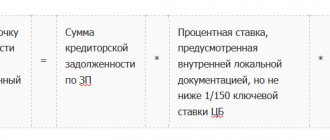A disciplinary offense is a violation of military discipline, which is expressed in the illegal actions of a military personnel. Such actions entail disciplinary liability if they do not fall under administrative or criminal law. The levy is imposed on private conscripts, contract employees and those called up from the reserves.
Dear readers! The article talks about typical ways to resolve legal issues, but each case is individual. If you want to find out how to solve your particular problem , contact a consultant:
+7 (499) 938-81-90 (Moscow)
+7 (812) 467-32-77 (Saint Petersburg)
8 (800) 301-79-36 (Regions)
APPLICATIONS AND CALLS ARE ACCEPTED 24/7 and 7 days a week.
It's fast and FREE !
What it is?
Disciplinary action is a measure of responsibility for the execution of a disciplinary violation.
The following penalties are applied to the guilty employee::
- Comment.
- Application of reprimand.
- Severe reprimand.
- Application of dismissal.
The law on disciplinary liability and charters, as well as regulations on discipline, may determine other penalties for certain categories of employees. All of them are appealed in the manner prescribed by law.
Kinds
Disciplinary sanctions are applied to military personnel for official violations and are used to prevent the commission of disciplinary offenses.
The types of disciplinary charges against military personnel must be understood as the degree of punishment determined by law for an offense. For military personnel of various ranks, appropriate measures of influence are used.
These include the following types of penalties::
- A reprimand entered into a personal file.
- Severe reprimand.
- Prohibition on reduction.
- Up to five outfits out of turn.
- Early dismissal from service.
- Demotion.
- Demotion in rank and transfer to a low position.
The imposition of disciplinary action, in addition to official defeats, is expressed in financial loss, namely in deprivation:
- A single reward for good fulfillment of obligations.
- Regular bonus for service.
- Additional quarterly financial incentive.
In addition to the financial loss, the culprit receives an entry in his personal card. If a serviceman has committed two violations during the reporting period, he may be demoted in rank or prematurely dismissed from the army with the proper wording.
If during the investigation the commander assigns criminal or administrative liability to the employee, he must notify the prosecutor's office. It must be taken into account that two or more punishments cannot be imposed for a single violation.
Types of penalties for employees are imposed taking into account the rank of the guilty person, the requests of the military regulations, as well as the amount of power wielded by the person making the decision on punishment.
According to the military regulations, administrative violations are also subject to liability. The exception is violations of the law, the form of punishment for which is determined on a general basis.
For administrative offenses the following are applied to employees:
- Correctional work.
- Administrative arrest.
The following charges may also apply to employees:
- Withdrawal of dismissal from the location of a military unit.
- Warning about incomplete compliance.
- Reduction in rank by one step.
- Dismissal from service due to failure to fulfill the circumstances of the contract.
If disciplinary penalties are used illegally and unfairly, this will lead to less active employee initiative. Often, employees and managers themselves hide the violations of subordinates, which leads to a bad influence on the work of subordinates.
Read the article about the property tax on leasing in 2021. What are the taxes on dividends in 2021? More details here.
How long does it take for a serviceman to be reprimanded?
Types of disciplinary sanctions against military personnel can be applied to persons in military service: fixed-term, or under contract. When assigning the severity of a penalty, the nature, circumstances, and severity of the consequences that cause the disciplinary offense are taken into account. A huge role is given to the characteristics of the individual, the presence of services to the state, the form of guilt, and the presence of aggravating/mitigating circumstances.
The types of disciplinary sanctions for military personnel should be understood as the degree of punishment established by law for a particular offense.
How long does it take for a reprimand in the army to be removed? among the soldiers
1. Why does the prosecutor's office classify direct sabotage as simple negligence? For three days, 38 sick soldiers were hidden at the training ground from the leadership who came to check. As reported in the media. (1)
3. The number of Russian army personnel stationed abroad? The number of Russian army personnel stationed abroad? How many Russian conscript soldiers are there in total?
Disciplinary sanctions imposed on officers
e) early transfer to the reserve of officers from deputy regiment commanders, senior assistant commanders of ships of 1st rank, corresponding to them and below.
Art. 88 The imposition of a disciplinary sanction on a serviceman who has committed an offense is carried out, as a rule, within 24 hours, but no later than 10 days from the day when the commander (superior) became aware of the offense committed. When imposing a disciplinary sanction, the commander (chief) must not humiliate the personal dignity of the subordinate and allow rudeness.
A warning, remark or strict indication of omissions in service expressed by a commander (chief) to a subordinate is not a disciplinary sanction.
All incentives and disciplinary sanctions provided for by this Charter, including incentives announced by the commander (chief) to the entire personnel of the unit (team), military unit, are entered into the service card no later than within seven days.
When a disciplinary sanction is lifted from a serviceman, a note is made on the service card in the corresponding column of the “Penalties” section about when and by whom the sanction was lifted.
If a disciplinary sanction is imposed on a serviceman, except for the cases specified in Art.
Adjutant Company
Very often, commanders of all levels abuse disciplinary practices and bring military personnel to disciplinary liability for any reason. This is done deliberately and with the goal of making subordinates more pliable, obedient, and sometimes obsequious. And if, for example, an officer decided to defend his position or stand up for himself, then penalties that have not been lifted make it possible to punish the obstinate serviceman financially.
In addition to monetary payments, one must not forget that the presence of two or more penalties gives the commander the right to dismiss such a serviceman from military service or demote him in rank.
Considering that penalties are imposed on servicemen by commanders not always justifiably and in compliance with the established procedure, losses of tens and hundreds of thousands of rubles can be a very unpleasant fact.
Then the question arises of appealing previously issued orders to bring military personnel to disciplinary liability.
Article 28
1. Disciplinary action is a measure of responsibility established by the state for a disciplinary offense committed by a military man or a citizen called up for military training, and is applied to prevent the commission of disciplinary offenses.
2. For a disciplinary offense, the following types of disciplinary sanctions may be applied to a serviceman or citizen called up for military training, taking into account the provisions of paragraph 3 of this article:
deprivation of the next dismissal from a military unit or from a ship to shore and deprivation of the badge of excellence - to a soldier, sailor, sergeant or sergeant major undergoing military service upon conscription;
The procedure for imposing disciplinary sanctions on military personnel
Disciplinary sanctions for military personnel are described by the Military Regulations, which contain the rules and specifics of retribution for crimes in the military regulations. The chief decides to conduct an investigation.
If guilt cannot be proven or the action was carried out under insurmountable conditions, then the protocol must contain a note about the outcome of the investigation, which is closed at this stage.
The Labor Code stipulates that the levy is waived from the employee in the following situations:
- At the request of the boss.
- According to the employee.
- At the request of the boss.
- At the request of the representative body.
The commander can write in the protocol that the case is closed with a minor violation. The protocol is written according to the official example in a period of one to ten days.
The charter prohibits punishing the entire staff of employees; responsibility lies with one employee. The boss can cancel or tighten retribution by pointing out the mistakes of his subordinate boss.
The act of violation is executed immediately after signature, but no later than a month . In a situation where compliance is not feasible due to vacation or illness, the resolution is recorded in the personal card of the culprit. A reprimand, a severe reprimand and deprivation of badges are given during the construction of the unit at which the order is read.
A warning about service non-compliance is given once a year. If a repeated offense occurs, the culprit is demoted in position or rank. Dismissal from the Russian Armed Forces is used for contract employees who have committed a gross crime of the charter or contract circumstances.
Usually disciplinary action is taken immediately, but sometimes this happens before the expiration of the statute of limitations period for the disciplinary action assigned to the soldier. Even if the limitation period has passed, the record of collection will remain in the service card.
The task of disciplinary action is considered to be not only the educational influence on the employee who has violated discipline, but also the colleagues of the offender. The best weapon for crime prevention is public punishment of contract and conscript military personnel.
Disciplinary arrest may also be used against an employee - to all military personnel and citizens summoned to military training.
As for the imposition of a disciplinary penalty on a boss, it, unlike the levy on an ordinary employee, is not imposed in the presence of subordinates. After all, the commander must preserve his authority before his subordinates.
Reprimand in the army
14.03.2018
Of course, it is good to rely on a person’s conscience and reason, but the most effective way to maintain obedience and organization was and will still be the fear of punishment. There have always been two types of punishment in the army: legal and unspoken. With legal punishment, a soldier who has committed an offense may receive, for example, a reprimand or a severe reprimand. In principle, they are not afraid of a reprimand, since it does not threaten anything.
. “get the commander”, Zhenya, allow me to address you this way, My commander, with whom I had the opportunity to serve together for almost 23 years (I became a warrant officer from a private in 1.5 years and a senior warrant officer after 5 years), and (he from a senior lieutenant rose to lieutenant general) always told me that in the Army there is a rule where it says. Paragraph No. 1. THE COMMANDER IS ALWAYS RIGHT. Paragraph No. 2. IF THE COMMANDER IS WRONG, THEN SEE PARAGRAPH No. 1.
How long does it take for a serviceman to be reprimanded?
All incentives and disciplinary sanctions provided for by this Charter, including incentives announced by the commander (chief) to the entire personnel of the unit (team), military unit, are entered into the service card no later than within seven days.
What are the disciplinary sanctions for military personnel?
The protocol must be drawn up according to the official format. of 1 to 10 days is allotted for the implementation of the action . It should be remembered that the Charter prohibits punishing all military personnel at once. Only 1 person who caused the incident should be held accountable.
What are the disciplinary sanctions for military personnel?
The act of violation is executed immediately after signing, but no later than a month. If execution is impossible due to vacation or illness, the decision is entered into the personal card of the perpetrator. A reprimand, severe reprimand and deprivation of badges are announced during the formation of the unit, at which the order is read.
A warning about professional non-compliance is issued once a year. If a repeated violation occurs, the perpetrator is demoted in position or rank. The assignment of the next military rank may be delayed for a period of 2 years.
Early dismissal from the ranks of the RF Armed Forces applies to contract servicemen who have committed a gross violation of the charter or terms of the contract.
We recommend reading: Privatization of a share in an apartment
What are the disciplinary sanctions applied to military personnel?
An order to impose disciplinary action can only be issued in situations where the employee’s guilt is fully justified. If a disciplinary penalty is imposed on an employee in the form of a reprimand or reprimand, then the document on the penalty is written in any form.
How are the military punished for violating discipline?
- announced before the formation (for officers - in person or at a meeting);
- in case of deprivation of dismissal, the culprit does not have the right to leave the unit and participate in cultural events for a week;
- arrest requires isolation (placement in a guardhouse);
- expulsion or early dismissal from service occurs without the consent and participation of the culprit.
What is the difference between a reprimand and a severe reprimand
- This is a full disciplinary sanction;
- its validity will last exactly one year unless canceled early;
- in paragraph 5 of Art. 81 it makes no difference what type of punishment the employee already has, a reprimand or a severe reprimand; the very fact that the punishment is still in force is enough for dismissal.
83.
For a violation by a junior in the presence of a senior of military discipline or the rules of military salutation, the senior is obliged to give the junior a reminder and, if it does not have an effect, he may apply other measures established by military regulations, up to arrest and detention in the guardhouse.
Discipline and disciplinary punishments in the army
The illegal way to maintain discipline and punish the guilty was simple: physical force. Simply put, a fight.
The soldier did not follow the order? Why take him to the guardhouse, then pick him up, receive harsh scoldings from the command, if you can quickly give him a couple of slaps, and next time he will try to follow instructions, spurred on by fear? The senior conscription, the “grandfathers,” trained the young recruits in the same way. Thus, discipline was often based not on legal methods of punishment, as it should be, but on illegal ones, which worked faster and more efficiently.
We recommend reading: Where to get a birth certificate
Appealing a disciplinary sanction for military personnel
- hazing in the unit;
- leaving the territory of a military unit without the permission of the commander, with the exception of officers;
- failure to appear from dismissal or hospital on time;
- absence from the place of duty for more than 4 hours without good reason;
- failure to appear at the military registration and enlistment office;
- violation of the order of combat duty, border, guard service, patrol, and protection of public order;
- improper handling of ammunition, weapons, equipment, if damage is caused to military personnel or property of a military unit;
- violations of traffic rules and rules for driving a car and heavy equipment, if negligence caused harm to military personnel or property;
- being on duty under the influence of alcohol or drugs.
Type of reward for military personnel: removal of previously applied disciplinary sanction
The RF Armed Forces Administration stipulates that only one disciplinary sanction can be lifted from a serviceman at a time. However, the order of removal of previously imposed penalties is not disclosed. It seems that the decision on what type of penalty should be lifted is made by the commander (chief), who applies this type of incentive in accordance with his authority.
26 Disciplinary sanctions applied to officers
A superior commander (chief) has the right to cancel a disciplinary sanction applied by a subordinate commander (chief) if he considers that this sanction does not correspond to the gravity of the disciplinary offense committed, and to apply a more severe disciplinary sanction.
Incentives that apply to soldiers and sergeants
An essential means of strengthening military discipline and order is incentives. Each leader, within the limits of the rights granted to him in accordance with the true charter, must encourage subordinate employees to perform exploits and rational initiative.
Incentives not prescribed by this Disciplinary Charter may also be used for military personnel, in accordance with the laws.
The following incentives are used for soldiers and sergeants:
- Withdrawal before the imposed disciplinary charge.
- Cancellation before the imposed penalty.
- Gratitude.
- Permission to leave a military unit for conscripts for up to three days.
- Notification to relatives about exemplary performance of military duties and incentives.
- Increasing the duration of leave for conscripts for the entire duration of military service by up to ten days.
- Rewarding with a certificate, expensive gift or funds.
Disciplinary sanctions against military personnel
5 minutes Author: Elena Pavlova 303
Military discipline is one of the foundations of the combat readiness of the Armed Forces of the state. Unquestioning obedience to orders and compliance with statutory requirements in peacetime ensure the coherence of the unit’s actions in combat conditions.
Incentives and disciplinary sanctions applied to military personnel are regulated by one of four legal military documents - the Disciplinary Charter of the Armed Forces (AF) of the Russian Federation. The legislative basis for the use of a system of rewards and punishments is the Law “On the Status of Military Personnel.”
On duties and disciplinary power
The penalties to which a military member may be subjected do not necessarily have to have an administrative or criminal basis. Most penalties applied to personnel relate to violations of military discipline and failure to fulfill military duties.
The main obligations of a person in uniform include:
- loyalty to the Ceremonial Oath (oath) and the fundamental Law of the State (Constitution);
- accurate execution of orders;
- adherence to statutory rules;
- respect for commanders and military leaders;
- strict security of information related to state secrets;
- strengthening military camaraderie;
- decent behavior;
- impeccable outfit.
Disciplinary power, that is, the right to decide on punishment and reward, is vested in unit commanders. The rights granted to subordinate commanders are always possessed by the higher command. Penalties imposed on subordinates are a method of educational work.
Its main functions are as follows:
- awareness of wrongdoing;
- carrying out punishment corresponding to the offense;
- prevention of violations of military discipline.
- development of one of the key qualities of a warrior - self-discipline.
Penalties in the army are divided into several types, and are imposed according to the principle: one violation - one punishment. That is, several types of penalties cannot be applied to a fighter for the same offense. The application of a specific type of disciplinary action to military personnel depends on the severity of the offense committed.
The analysis of rewards and penalties is carried out in each division in the form of a card index. You can get acquainted with the information entered in the service card once every six months, against signature. Upon promotion in rank, information about penalties imposed is canceled, along with the old service card. The new card contains information about the rewards received.
Range of possible punishments in the army
The following disciplinary sanctions may be imposed on privates and non-commissioned officers undergoing conscription military service:
- reprimand (simple, strict, with entry on the card, without entry);
- out-of-turn outfit (a maximum of five outfits can be assigned);
- deprivation of leave for a week, including attendance at festive events organized on the territory of a military unit;
- removal from position (transfer to a lower position);
- reduction of military rank (for sergeants and foremen);
- ban on wearing a badge;
- disciplinary arrest by decision of the garrison court with serving the sentence in a guardhouse.
Demotion in rank may involve transfer to a lower position. The following applies to warrant officers and officers, as well as personnel performing military service on a contract basis:
- reprimand (simple, strict, with or without entry in your personal file);
- removal from position (transfer to a lower position);
- demotion in rank (for sergeants and foremen), officers are not subject to this punishment;
- requisition of a badge;
- warning about official inadequacy of the position held;
- deprivation of part of the monetary allowance (thirteenth salary, monthly or quarterly bonus);
- dismissal for discredit;
- disciplinary arrest by decision of the garrison court with serving the sentence in a guardhouse.
In cases where the offense is related to an administrative violation or a criminal act, the unit commander is obliged to inform the military prosecutor's office. This applies to both conscripts and contract soldiers.
Incomplete list of offenses for which penalties are imposed
Disciplinary offenses can be intentional or unintentional. According to their severity, they are classified as:
- insignificant or small;
- significant;
- rude.
Minor offenses are considered to be those that did not result in damage or injury. For example, non-statutory uniform of a serviceman, being late for duty or being discharged of a soldier undergoing military service upon conscription.
Gross misconduct that inevitably entails penalties are:
- Hazing relationships manifested in hazing (discrimination based on length of service) or fraternity (organization of groups according to the territorial principle of civilian residence).
- State of alcohol or drug intoxication.
- Skimping on official duties and leaving the place of duty without permission.
- Violation of the terms of the granted leave (delay or failure to appear).
- Neglect of the rules for daily duty or combat duty.
- Actions that resulted in malfunction or destruction of the material and technical base and property of a military unit.
- Incorrect handling of small arms, weapons and projectile equipment (ammunition), resulting in material damage or harm to human health.
For military personnel in the position of drivers, a significant offense is a violation of the Traffic Rules.
Registration of a disciplinary offense
A serious disciplinary violation must be documented in writing.
As the analysis progresses, officials establish:
- Report on the conditions for carrying out a disciplinary violation.
- Responsible person for the violation.
- What is the employee's fault? What are the arguments for committing a violation?
- Characteristics of the guilty employee.
- Consequences of the violation committed.
- Factors that mitigate and aggravate guilt.
- Reasons for the misconduct.
- Other details of the case that directly or indirectly affect the proceedings.
Terms of use
The boss can subject the employee to disciplinary action from the moment the violation is discovered. This time does not include the employee’s illness, his stay on vacation, as well as the period necessary to take into account the opinion of the employee representative body.
The day of detection of a disciplinary violation is considered the day when the official to whom the employee is subordinate became aware of the violation, regardless of whether this official is vested with the right to impose penalties or not.







